Education
Investments in expanding any level and type of education in general lead to higher life-time earnings and valuable contribution to society. The costs are more than offset by the future value of a more educated work force. But, some education investments are far more profitable than others.
Targets with the highest benefit-cost ratio are:
- Increase the preschool enrollment ratio in Sub-Saharan Africa from the present 18% to 59% - for every dollar spent the benefit is 33 dollars.
- Increase the primary education enrollment ratio in Sub-Saharan Africa from 75% to 100% - returns $7 back on the dollar.
- Improve school quality by increasing student test scores by one standard deviation - benefits are worth 4 times the cost.
A valuable target within the focus area is:
- Ensure secondary school completion has a benefit of $4 for every dollar spent.
The following targets are relatively ineffective or there is large uncertainty regarding the benefit-cost ratio:
- Provide vocational education within the main school system.
- Education and training programs for older workers
Scroll down to read our series of reports examining education targets for the post-2015 development agenda, written by leading economists and experts.
Assessment Paper
The aim of the assessment paper, commissioned by the Post-2015 Consensus project and written by George Psacharopoulos formerly of London School of Economics and the World Bank, is to take a closer look at the UN education targets and identify the ones that have the highest benefit to costs. The paper fundamentally questions whether 'Education for All' goals, which have been promised for more than 50 years and not achieved, should be repeated once more for the post-2015 agenda. Instead he argues for a more focused target: expanding preschool education in Sub-Saharan Africa, which provides the highest benefit for every dollar spent. In fact, reducing by 50% the proportion of children who are not attending preschool in Sub-Saharan Africa has a benefit-cost ratio of 33.
Perhaps, should “Education for All” be replaced by “Education for Some”, i.e., the most needy? But such mundane term would never fly in international parlance."
- George Psacharopoulos
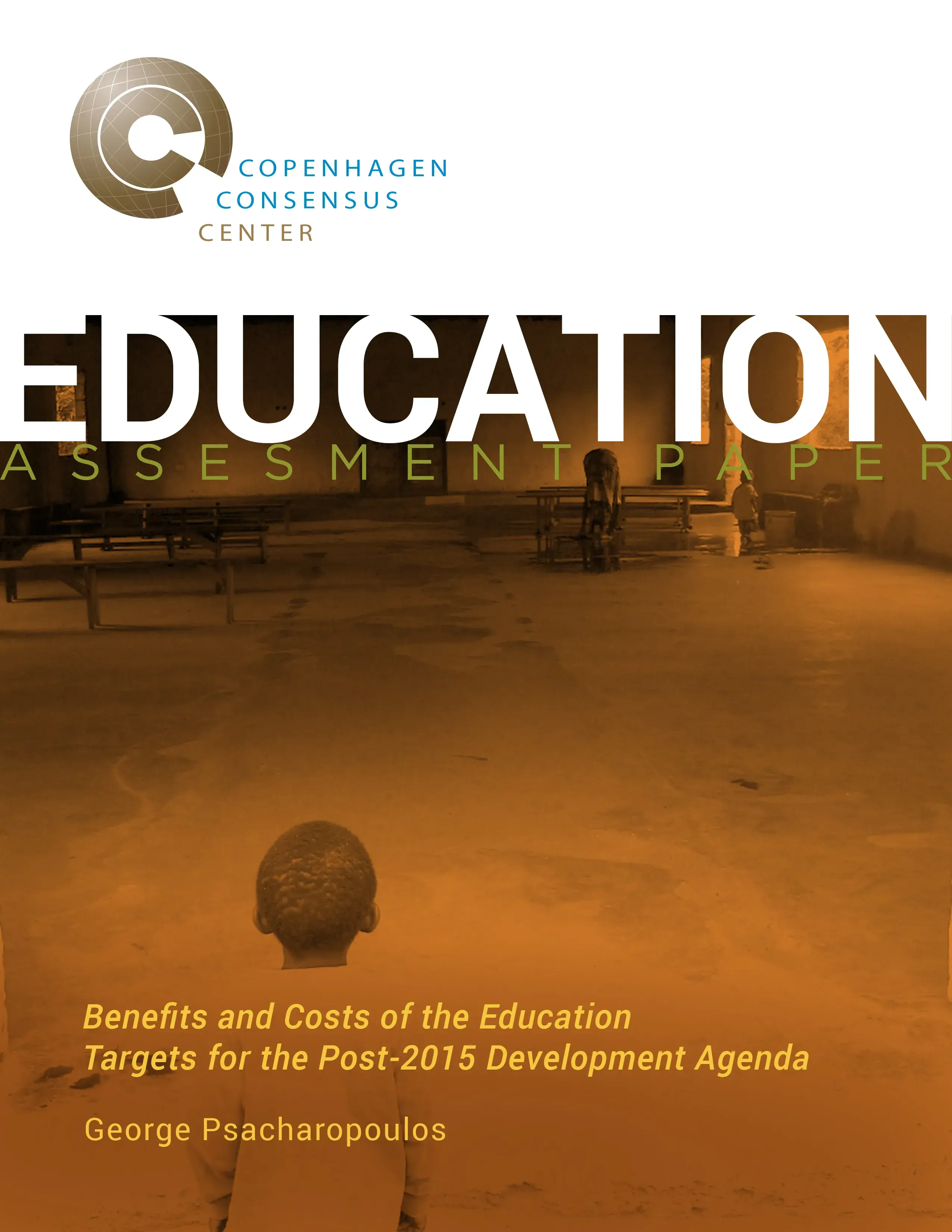
Perspective Paper
Paul Glewwe, Professor of Economics at University of Minnesota and Caroline Krafft, Economics PhD Candidate at University of Minnesota, generally agree with George Psacharopoulos on the value of improving school quality, and share his skepticism of vocational and technical education targets. However, they also argue that the evidence for expanding pre-primary and primary education in Sub-Saharan Africa is not as strong as he claims.
Ultimately we come to similar priority goals. Pre-primary education and school quality investments should receive priority among the education targets being considered as post-2015 development goals."
- Paul Glewwe and Caroline Krafft
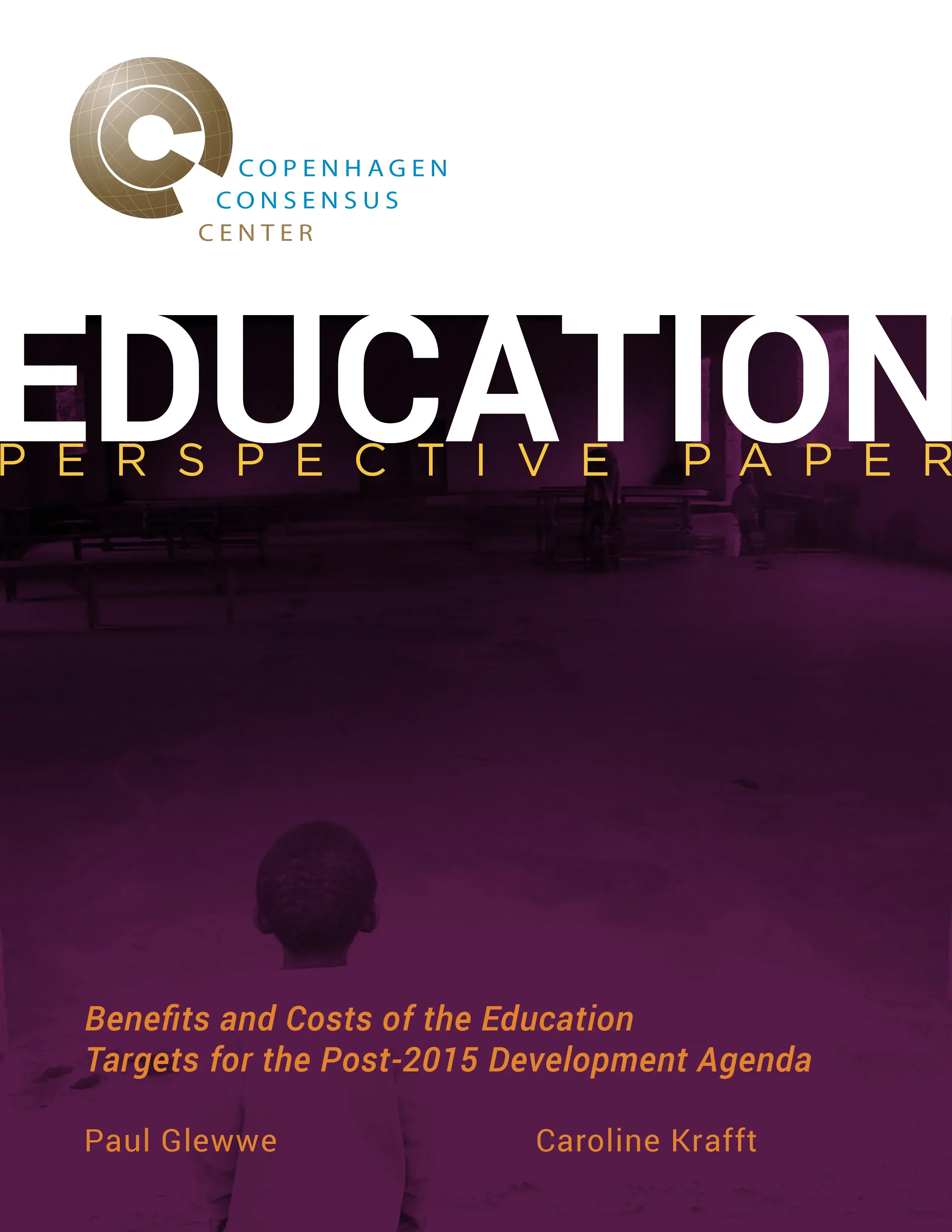
Perspective Paper
Peter Orazem, Professor of Economics at Iowa State University, supports George Psacharopoulos’s view that interventions that address impediments to schooling at the earliest age are likely to be the least expensive and the most effective. However, Orazem contends that providing formal pre-school may be a more expensive strategy than interventions that focus on addressing child health, parenting skills or providing a social safety net that helps replace lost earnings from parental mortality.
I support George Psacharopoulos’s view that interventions that address impediments to schooling at the earliest age are likely to be the least expensive and the most effective.”
- Peter Orazem
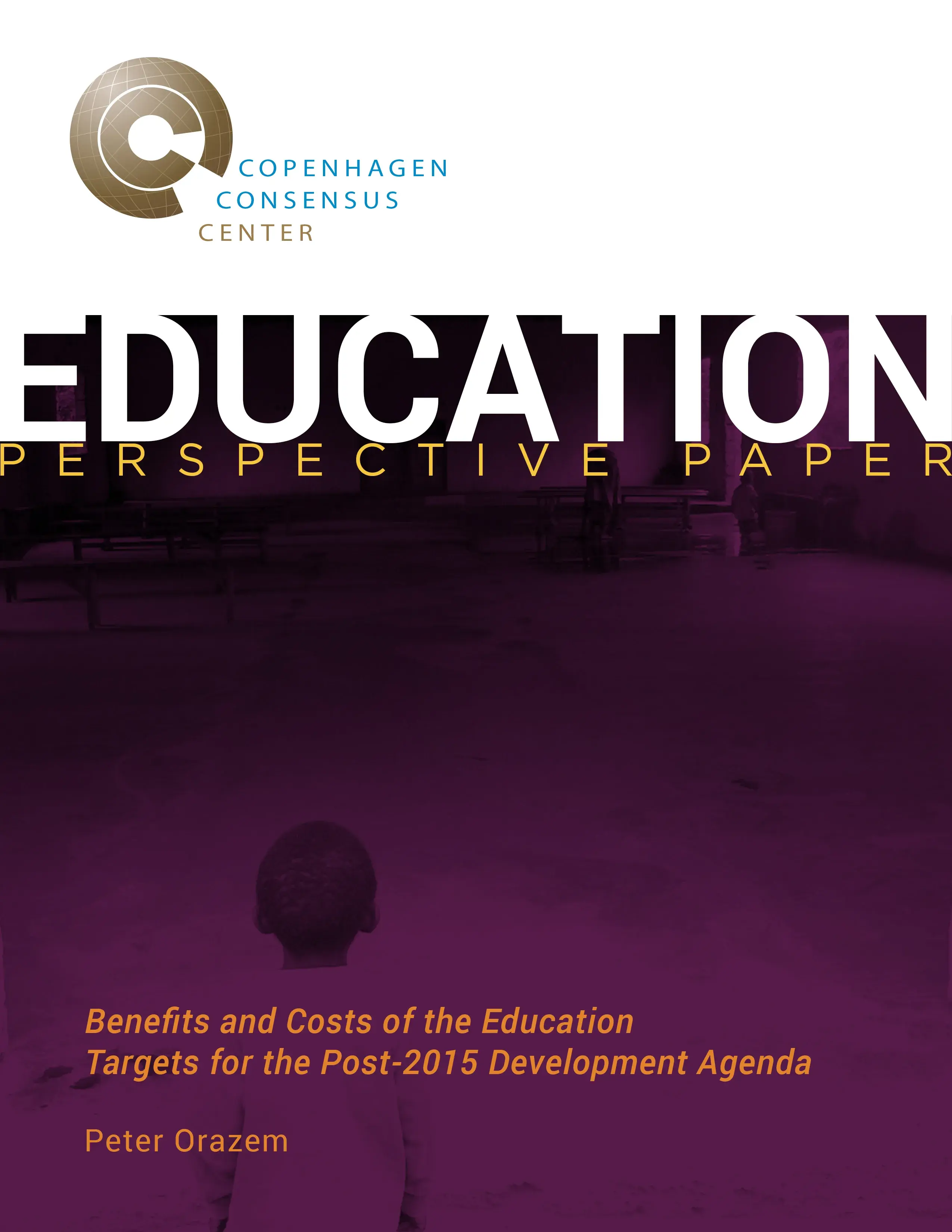
Viewpoint Paper
Education International fundamentally disagrees with the approach of the Post-2015 Consensus project and highlights a number of concerns about the analysis of the education goals, as presented by George Psacharopoulos. The viewpoint of Education International is that economic evidence alone cannot determine choices that are made for public goods, such as education.
A country that lacks the basic infrastructure of a national education system cannot choose either primary or lower secondary education – it will have to invest in both."
- Education International
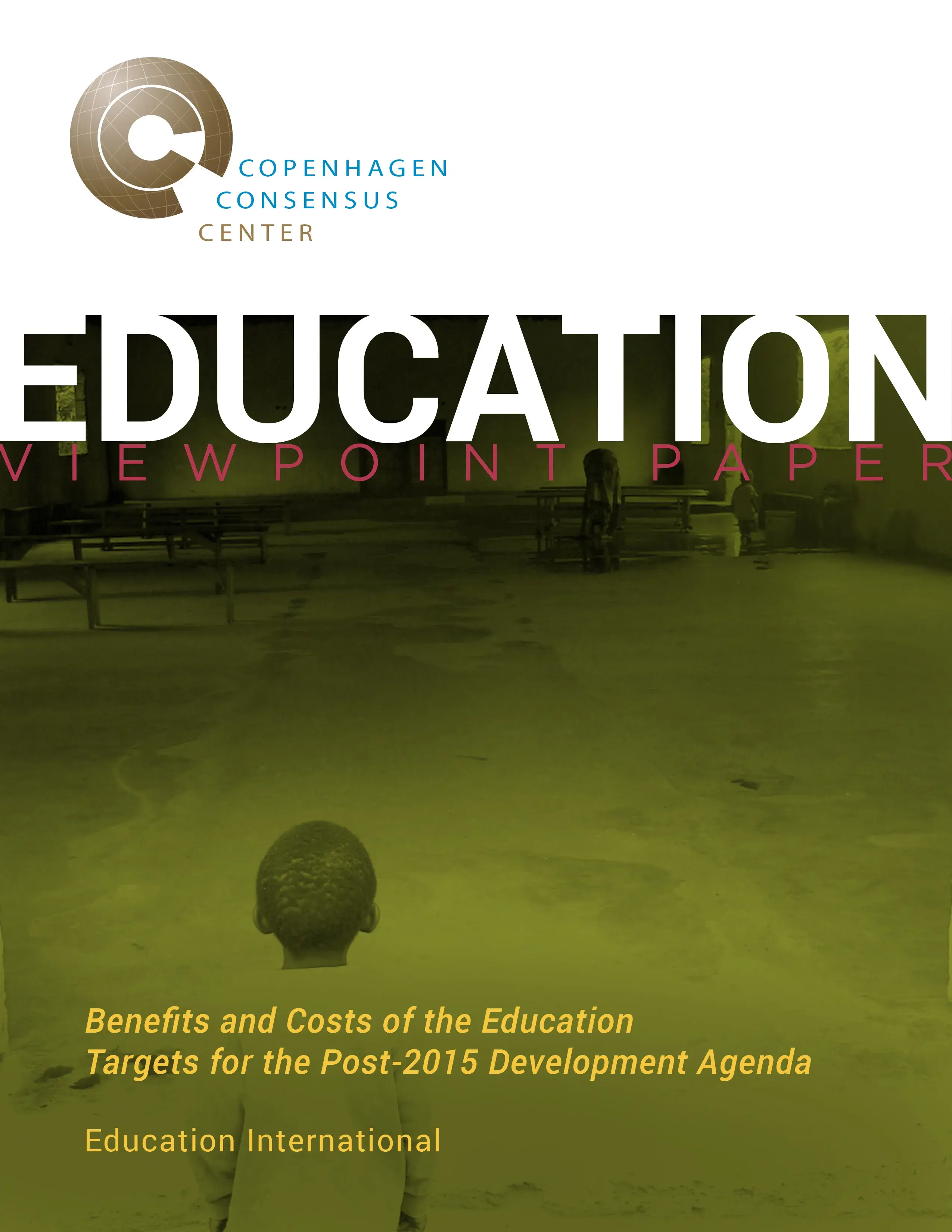
Viewpoint Paper
The viewpoint of Save the Children finds education to be a fundamental human right and, as such, the provision of quality education for all children, rather than just some, is an imperative for governments pre- and post-2015, irrespective of the relatively low benefit-cost ratio investment in education may yield in some contexts. Consequently, post-2015 education efforts should strive towards zero targets in terms of all children being able to access quality education, with sufficient funding being mobilised to enable these targets to be met across countries.
The paper provides useful findings from an economic perspective of the need for a continued (and perhaps increased) focus on early childhood and primary education going forward, particularly in low-income countries."
- Save the Children
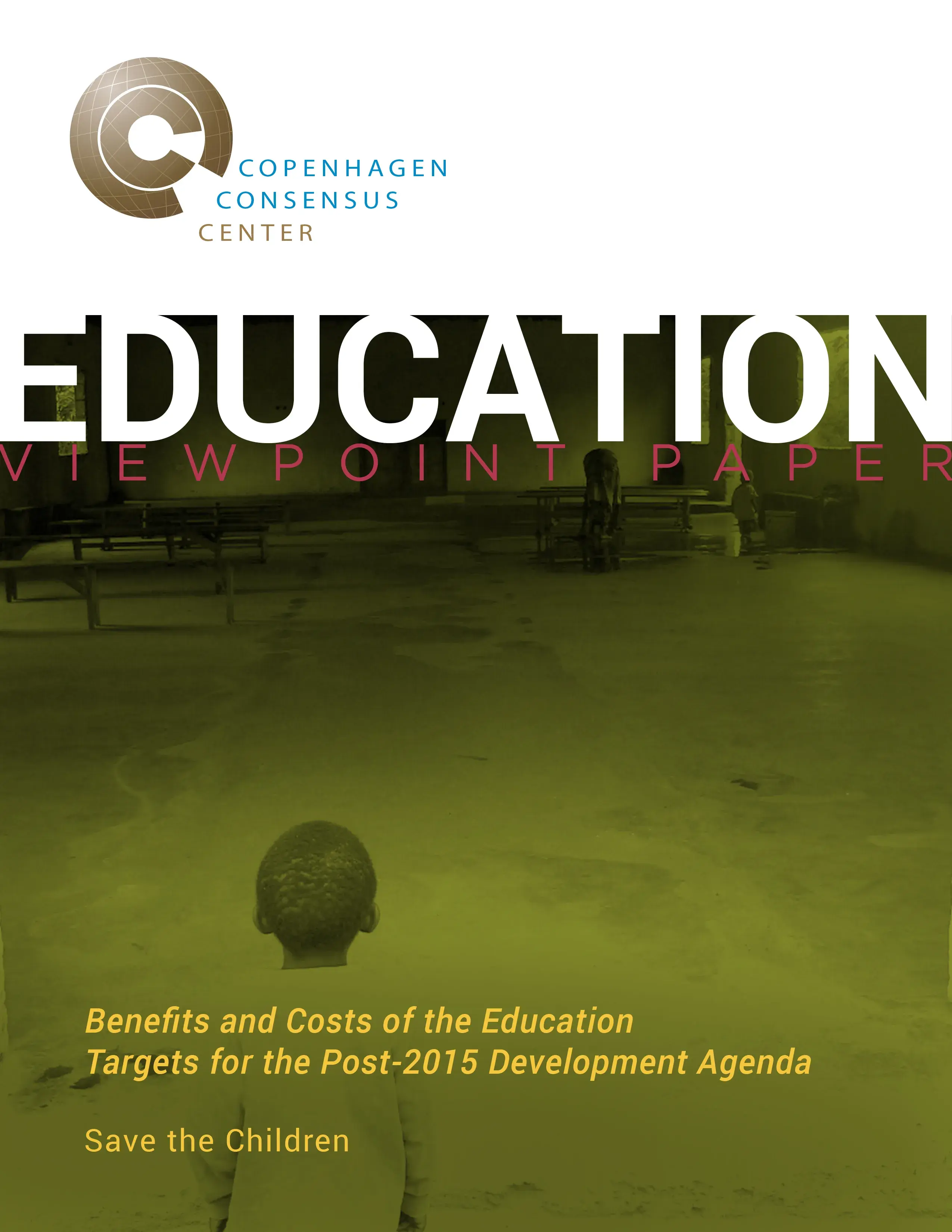
Viewpoint Paper
UNICEF Education has reviewed and is broadly supportive of Psacharopoulos, who backs their view that specific targets are needed for learning outcomes. They are keen to replace broad targets on universal education by realistic, measurable percentage increases in the numbers of children at school. UNICEF also note that there is a trade-off between economic efficiency and equity in some cases (for example, in the education of disabled children). It is suggested that cost-benefit analysis should therefore not be the sole factor used for decision-making. Their other substantive criticism is that Net Enrolment Ratio should be replaced by Primary Completion Rate as one of the key metrics used.
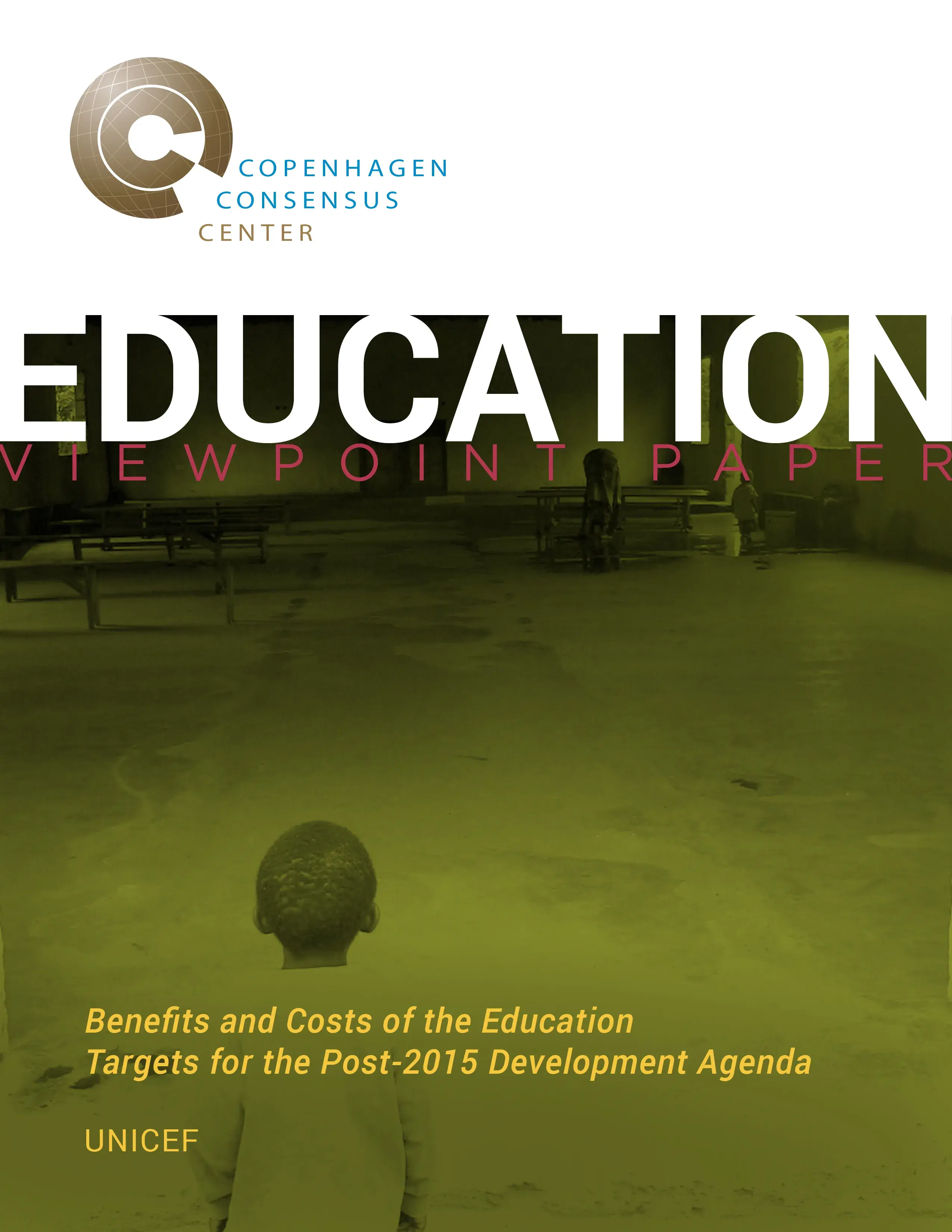
The Post-2015 Consensus project brings together 60 teams of economists with NGOs, international agencies and businesses to identify the targets with the greatest benefit-to-cost ratio for the UN's post-2015 development goals.





